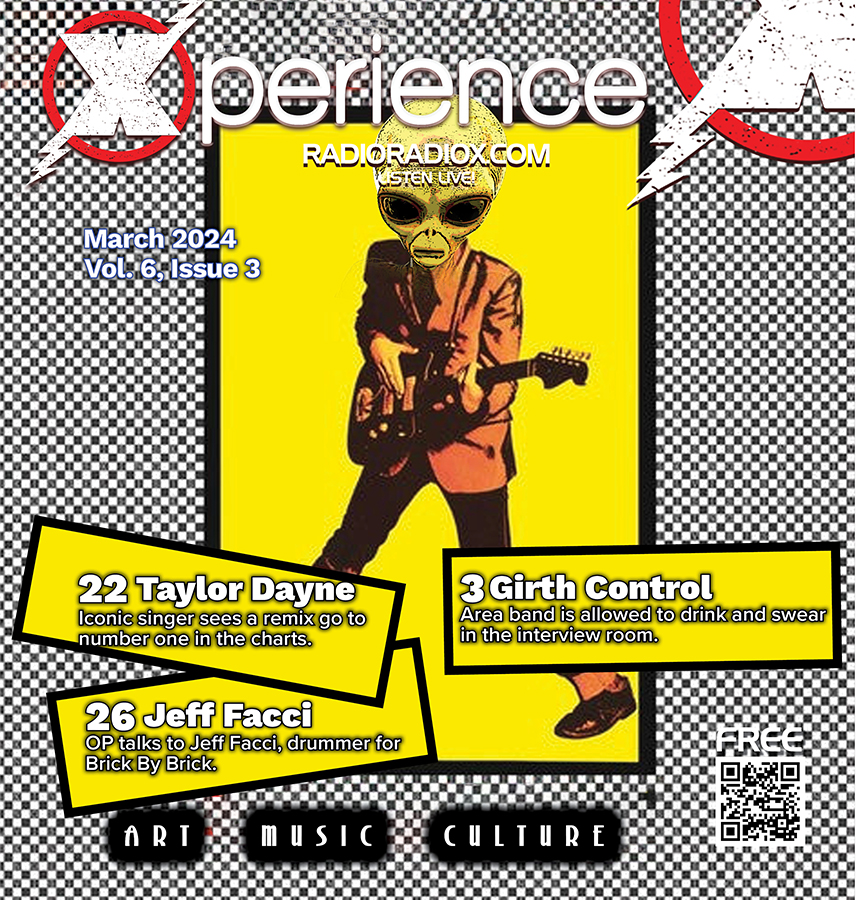The Sound of Life in the Air- Classical Flutist Melanie Chirignan Speaks of the Vibrancy and Variation Hidden in the Classical World. By: Liam Sweeny
Written by Staff on November 10, 2021
RRX: Many people take classical instrument lessons when they grow up, few pursue it, and you have. And not only have you beat the odds, you’re pretty much one of the people boosting the odds for others. How do you think you were able to beat the odds and wind up with a classical career?
MC: Wow, thank you for the huge compliment. Well, everyone that sticks with music at all has some talent, so that’s not it. I treat it like a job because it is, and I persevered and practiced a lot for many, many years. Also, I really love chamber music. Concerts are the highlight of the month, so I make sure to keep scheduling things. When I find a piece I want to play, I find the players, and create an event. I keep finding pieces I must play, and so it goes on.
RRX: You are a flautist, which for the uninitiated, means you play the flute. You also play piccolo and alto flute. I think many people, including our readers, might be hard-pressed to tell the difference between these based on sound alone. How would you describe the differences in these three instruments?
MC: The piccolo is smaller and requires much more precision than the flute. It’s like it has a smaller bullseye, and the tiniest lip movement or change in air speed will be heard. It is an octave higher and can really sing out over an entire orchestra. It’s small but mighty. The alto flute is much bigger than the flute. It has a more hollow, mellow sound than the flute. Many people like the alto flute best because they find the more diffuse tone pleasant. I like the flute best because of the bigger dynamic range (it can play louder and softer than alto flute) and I like its richness, how it has more harmonics in the sound.
RRX: You’ve played in so many places, including, but certainly not limited to the Smithsonian Museum of Natural History, Albany Pro Musica, Glens Falls Symphony Orchestra, Troy Savings Bank Music Hall, and Proctors. If all the places you’ve played were in a lifeboat, it would sink. Describe one that has a special meaning to you.
MC: The Troy Savings Bank Music Hall is so acoustically perfect; it is literally awe-inspiring. The sensation is that the hall supports your sound and helps you play your best. This is why the hall has such an internationally known reputation. For me, I’m so thrilled to have a residency there with my wind quintet Quintocracy, and Jon Elbaum and the staff are so great to work with-those things help make it stand out as outstanding to me too.
RRX: We are used to covering the more rock ‘n’ roll side of things. And we do so because it’s not just a music, it’s a story. Insane tours, bar fights, Egos left and right. But classical is different. It seems closed off, hermetically sealed from drama. Is it? Are there adventures that go beyond the movements? Is the community just organized differently?
MC: I think for me, I try to take life’s drama and use it to play as musically as possible. I remember after my first heartbreak, my teacher told me to use those feelings to play, and we came back to Debussy’s Syrinx. Unlike pop music, classical musicians strive to never play the same phrase exactly the same. We come up with variations constantly, and so I think being attuned to the nuances that are your human emotions helps your musical expression. That being said, there is of course drama. Look at Mozart in the Jungle! Luckily, I got to be an extra in, and never experienced anything like that. Although we as classical musicians may look like we have it all together, my duo partner once forgot his pants-well his concert pants, he had jeans on.
RRX: The flute and the piccolo are woodwinds. Their drivers are breath. And unlike singing, which is basically simple to do but impossible to master, some feel that woodwinds are just impossible to do. And you’re performing for an hour or more sometimes, which makes it harder. Is there a breathing technique that makes it easier?
MC: You’re correct that the flute is a tough instrument for air usage. It wastes the most air out of all the winds because there isn’t a mouthpiece to blow into that is sealed. Air gets blown across and there is wasted air, unlike the clarinet, oboe, bassoon, or any brass instrument. However, you learn to be efficient with your embouchure (the shape of your mouth), and with your air. I think if you’re used to practicing for a couple of hours a day, then you just get used to the breathing, you’re trained for it and have that endurance built up. I think practicing yoga has helped me with body awareness and breathing. Since I’m small, I make sure my cardio game is strong, which also helps my flute playing. I remember my undergrad teacher telling me she started running a few months before having to play the Neilson concerto to build up her lung capacity.
RRX: You teach as an adjunct professor at Saint Rose, and privately. And you teach all levels, from elementary school to conservatory level students. When I hear “conservatory” I think, are there named levels of learning? What does a conservatory student learn that’s different from a student just below that level? Is it just gradual?
MC: A conservatory is different from a liberal arts education in that you’re only learning music. My extraordinary high school flute teacher, Michelle LaPorte, convinced me that I should go for a liberal arts education so that I would be a more well-rounded person. The idea is that being well-rounded would be reflected in your artistry as a more engaged, fulfilled listening experience. I think she was right, but I did go to a conservatory for my master’s degree to fine-tune my playing.
RRX: This is where you answer the question I didn’t ask. Longest breath? Pied piper’s type of flute? Educate, enlighten, emote – the floor is yours.
MC: We keep hearing that classical music is dying, but it’s not. It’s just being re-birthed in different, more creative ways. Groupmuse for instance, is an organization that facilitates people to have BYOB chamber music house concerts. It has launched and is thriving in many cities as well as internationally. Also, I think with more awareness, women composers and black composers that weren’t previously published or brought into the classical canon are beginning to. I think there’s some great changes ahead.
If you want to catch some of my performances, find me at MelanieChirignan.org and subscribe to my mailing list.





 RadioRadioX
RadioRadioX